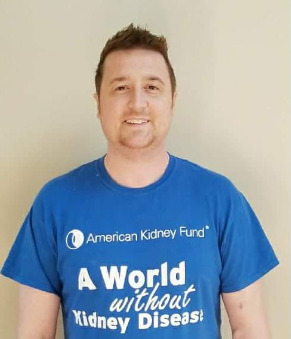 They cost me a promising college basketball career, my second toe and, for a while, my self-esteem. But gout and chronic kidney disease haven’t stopped me from leading a full life. And they shouldn’t hold others back either.
They cost me a promising college basketball career, my second toe and, for a while, my self-esteem. But gout and chronic kidney disease haven’t stopped me from leading a full life. And they shouldn’t hold others back either.
I was an active 18 year old when doctors discovered I had high blood pressure, caused by kidney issues. My kidney function hovered around 50 percent, but I was functioning well. Until the day I wasn’t. My second toe became swollen and painful following a hike in the Smokey Mountains. A year passed before the problem arose again.
In the years that followed, I experienced intermittent attacks in my second and big toes. Yet my gout remained undiagnosed. The swelling and pain was always attributed to some other cause – walking too much, shoes that were too small, or a stubbed toe. It wasn’t until my entire foot swelled up like a football that an emergency room doctor learned of my kidney disease, properly diagnosed me and prescribed medicine. The doctor informed me that my chronic kidney disease increased my risk of gout.
That’s when I encountered my first myth about gout: It attacks only people who are middle-aged and out of shape. Not true. I was neither.
Soon, attacks became more frequent, occurring every couple of months. They spread beyond my toes. My heels, knees, elbows and hands were all under attack. The pain was excruciating. Meanwhile, my kidney function had decreased to below 30 percent.
Around this time, I encountered my second myth about gout: Drinking cherry juice and eating yams aren’t good remedies. I learned from experience, because I was willing to try anything to lessen the pain of gout.
I finally connected with a nephrologist – a kidney specialist – who recommended dialysis to cleanse my body of the excess uric acid. It was effective for about a year. But my kidney function declined and, ultimately, I needed a transplant. My wife, my hero, donated hers and gave me a second chance to live a full life.
I’ve had the new kidney for 13 months. I’m not entirely symptom free, but I’m fortunate to see a lot of progress. First, my depression and anxiety have subsided. While I still experience gout attacks from time to time, I am no longer ashamed to talk about my health. In fact, I embrace the opportunity because I see now that I can empower others who also struggle with gout or kidney disease.
I can recall, years ago, the first time I told family and friends I had gout. They were critical, blaming me for the disease that caused me so much pain. I remember regretting that I’d said anything at all.
I don’t want others to feel trapped by shame and fear. So now I share my story to decrease stigma. I always work to raise awareness. People with kidney disease should know they are at a higher risk of gout. It’s important to know the signs, keep asking questions, seek treatment from a specialist and find the right community of people who can help you through.
I refuse to let gout control my life. I want others to have that same freedom.
Steve Winfree and his wife are foster parents in Tennessee. He advocates for increased awareness about living with chronic kidney disease and gout.
